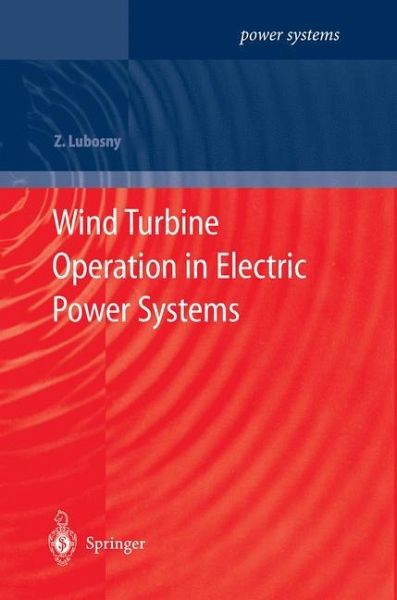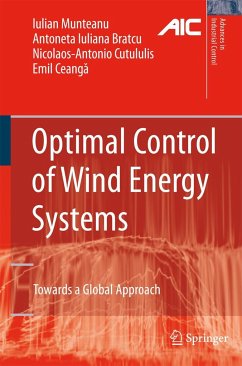
Wind Turbine Operation in Electric Power Systems
Advanced Modeling
Versandkostenfrei!
Versandfertig in 6-10 Tagen
113,99 €
inkl. MwSt.
Weitere Ausgaben:

PAYBACK Punkte
57 °P sammeln!
The total capacity of wind turbine generator systems (WTGSs) operating in the world reached 27 600 MW in Autumn 2002. In the European Union (EU) coun tries, wind generators capacity of 20 500 MW were operational. Most of them were located in Germany (10 650 MW), Spain (4100 MW) and Denmark (2500 MW). The Danish electric power system has the largest ratio of the capacity of WTGSs to the capacity of all sources of energy and it reaches about 30%. The mean value of the rated power ofWTGSs sold in 2000 was 930 kW. Today, wind generators with a rated power equal to 2 MW have become standard. The ex...
The total capacity of wind turbine generator systems (WTGSs) operating in the world reached 27 600 MW in Autumn 2002. In the European Union (EU) coun tries, wind generators capacity of 20 500 MW were operational. Most of them were located in Germany (10 650 MW), Spain (4100 MW) and Denmark (2500 MW). The Danish electric power system has the largest ratio of the capacity of WTGSs to the capacity of all sources of energy and it reaches about 30%. The mean value of the rated power ofWTGSs sold in 2000 was 930 kW. Today, wind generators with a rated power equal to 2 MW have become standard. The exponential growth of the number of WTGSs installed in power systems in the EU results from the policy which forces the sale of electric energy from re newable energy sources. The EU plan is to achieve a total capacity of WTGS of 60 000 MW by 2010 and 150 000 MW by 2020. In practical terms, such an in crease is possible by utilizing the wind as a source of energy. Other systems, e.g. solar or thermal, cannot yield such levels of energy. Utilization of water as a source of energy (from new power plants) is also limited, for various reasons. This means that energy from the wind is a reasonable prospect for the years to come.














